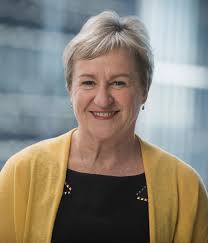The state government’s $53.5 million purchase of contaminated land for the Parramatta light rail was ineffective, open to corruption and of dubious value for money, the NSW auditor general says.

TfNSW acquired 6.3 hectares of land at Grand Avenue in Camillia, in western Sydney, from property investment company Grand 4 investments in June 2016 as a stabling and maintenance depot for the Parramatta light rail project.
Grand 4 had previously bought the land for $38.15 million from Akzo Nobel Pty Ltd, beating TfNSW’s offer of $28 million which was conditional on the owner fixing contamination at the property.
Five months later TfNSW offered Grand 4 $53.5 million for the land and agreed to assume responsibility for remediating the site.
Bought without valuation
Ms Crawford said in a report tabled on Tuesday that TfNSW didn’t get the land valued until the acquisition was finished, and the valuation specifically excluded any consideration of the costs of remediation.
TfNSW has since entered into contracts worth $106 .9 million to remediate the site.
“The cost of remediation has been significant, which diminishes the value of the land at the time of acquisition,” the audit found.
Probity management lacking
Ms Crawford found the deal was lacking in probity management and decision making was “rushed and poorly informed”.
“These omissions from TfNSW’s application of due diligence over the use of public money mean that TfNSW is unable to demonstrate that the acquisition represented value for money for the State,” she concludes.
“The purchase was a high-risk, high-value acquisition undertaken without some of the standard project controls and in an environment of volatile property market conditions.”
Corruption risks
The audit found TfNSW’s probity practices were inadequate and exposed it to the risk of corruption , misconduct and maladministration.
She highlighted the short timeframe for negotiating the agreement as a specific risk and noted that only one person completed a conflict of interest declaration.
TfNSW staff didn’t have approval to offer the $53.5 million to Grand 4 and the acting deputy secretary who approved it didn’t have delegation to do so, Ms Crawford said.
“TfNSW’s insufficient probity practices and gaps in documentation mean that we are unable to exclude the possibility that the transaction was affected by misconduct or corruption,” she concludes.
Recommendations for change
Ms Crawford makes seven recommendations to address the issues identified in the report, including taking steps to ensure “the deficiencies identified in the audit are not systematically diminishing Transport for NSW’s effective and ethical stewardship of public resources”.
In a response contained in the report TfNSW secretary Rob Sharp says the agency acknowledges deficiencies in the management of the acquisition and “a number of continuing risks”.
He said TfNSW was committed to improvement and would develop a program to implement the recommendations of the report and provide Ms Crawford with it by the end of June.





I can recall the old chemical company having to have a deep trench dug and lined with a membrane to prevent the chemicals in the soil from leaching into the river, that would have been around 40 years ago. A totally contaminated site.
There is certainly a culture problem in our Government Infrastructure schemes . TfNSW knew about site for Light rail Depot. Yet there business practices are More than Interesting.
A political Issue of many of the Announced First and work out the details later Infrastructure programs. This Culture allows developer to be in the box seat.
We continue to pay Bigger money because of Government Infrastructure planning and delivery strategies! Which are geared to provide the opportunity for Private sector Mega Profit, At Tax payers expense.
Simply put. Situations led simply by the power brokers for power and profit. This simply should not be allowed. Who is in control mega companies or elected governments?